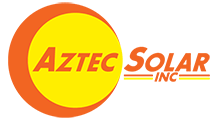One of the most important federal policy instruments for supporting the expansion of solar energy in the U.S. is the solar Investment Tax Credit. The solar industry in the U.S. has grown by over 10,000% since the tax credit was established in 2006, creating numerous employment opportunities and investing billions of dollars in the economy. The Solar Energy Industries Association (SEIA) strongly supported numerous extensions of this important tax credit, including the most recent postponement of the credit phasedown until December 2020.
Solar customers who are interested in taking advantage of this tax credit should begin their solar project sooner rather than later!
Solar Investment Tax Credit
Solar energy property owners can now claim a 26% federal tax credit against their tax burden (under Section 48) and residential (under Section 25D) investors. This credit is available to homeowners who purchase and install solar panels on their houses. The company that installs, develops or funds the project is the one that claims the Section 48 credit. The homeowner can also claim the Section 25D residential investment tax credit (ITC) on their personal income taxes.
A tax credit is a decrease in the amount of federal income taxes that a person or business would have to pay otherwise. The ITC is calculated based on how much money was invested on the solar property. Both the residential and business ITCs are equal to 26% of the cost invested in solar property that qualifies. The ITC then reduces based on the following schedule:
- For projects starting in 2021 and 2022, the percentage will be 26%.
- Projects that start development in 2023 will receive a 22% discount.
- After 2023, the residential credit will be zero, while the commercial credit will be 10% for the rest of the time.
If finished by Jan. 1, 2026, commercial- and utility-scale projects that began construction before Dec. 31, 2023, may still be eligible for the 26% or 22% ITC. On June 22, 2018, the IRS published Notice 2018-59 that specifies the conditions that a taxpayer must fulfill to prove that construction of a qualifying solar project has commenced to claim the ITC.
Solar ITC’s Impact
The ITC has proven to be one of the most important federal policy instruments in the U.S. for promoting renewable energy. As a result, solar deployment has expanded at both the distributed- and utility-scale levels across the country. In addition, because of the federal policy’s long-term stability, firms have been able to continue cutting expenses. As a result, the ITC is a straightforward success story for a more robust and cleaner economy.
Contact us today if you are looking to install solar on your house and take advantage of this investment tax credit before it is too late!



Recent Comments